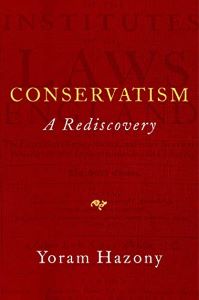Prostitution isn’t an ‘industry.’ It’s abuse – the ultimate in sexism. It’s also a lucrative business and now certain politicians want you and me to get a ‘piece of the action’.
Members of the House of Commons Subcommittee on Solicitation Laws have let it be known that their upcoming report to Parliament will recommend that Canada legalize solicitation (for the purposes of prostitution) and regulate the so-called prostitution industry itself.
It’s tempting to criticize these recommendations as a demonstration of the sort of ideologically driven, one-dimensional thinking that has come to characterize deliberation on social policy issues in our country – but that would probably be giving it too much credit.
Prostitution is a serious problem. Its magnitude may vary from community to community, but that does not alter the fact. That women, teenage girls, and increasingly even teenage boys, would be compelled to sell their bodies for the sexual gratification of others is appalling; a blight on any civilized society. Those individuals who force these poor souls to do so, or who facilitate it – the pimps and customers – are nothing less than modern-day slave-traders and owners.
A life of prostitution is a perilous one. Those who find themselves trapped in it are exposed daily to dangers that the rest of us can only imagine. The threat of violence and disease hangs over them like a thick and deadly cloud. Frankly, only the most cold-hearted would believe that we shouldn’t do something to help alleviate this suffering.
But the measures being contemplated by members of the committee will do no such thing.
Take the spread of disease. Prostitutes don’t catch diseases from one another – they catch them from their johns. How will compulsory medical examinations and health certificates prevent these johns from infecting the women they visit? The answer is not at all. In fact, the chief beneficiary of such a regulatory regimen will be the customers themselves.
Will legalization and regulation reduce violence and improve safety? The experience of those few jurisdictions that have tried this approach seems to indicate that while it does improve the working conditions of some, that improvement is marginal at best. As for those who cannot qualify for official sanction due to age or illness, regulation does not help at all. In fact, the evidence is that it may worsen their condition.
Regulated prostitution, moreover, means expensive prostitution. Licenses, inspections and certificates all cost money, as do clean facilities, higher wages, and even benefits. And of course, let’s not forget taxes. These factors combine to drive prices up, inevitably generating a demand for cheap, unregulated services which are satisfied, once again, by the most vulnerable – the young, the sick or the desperate – who are unable to find ‘legitimate’ employment. In short, rather than improving the situation of those who need help the most, regulation stimulates the growth of this black-market and drives it and its victims even further underground.
And as so often happens when bureaucracies are created to solve problems, the statistical outliers, in this case the most helpless victims of prostitution who make up this black-market, would likely fall between the gaps and be forgotten, or worse, ignored.
It’s possible that these concerns can be addressed through better law enforcement. But that would negate the very argument the prostitution lobby uses to justify its position – to wit, that law enforcement cannot adequately safeguard prostitutes. If, after all, the criminal justice system can protect those who fail to qualify as prostitutes under a new system, why can’t we rely on the same system to protect everyone now?
Nor will regulation eliminate criminal control of even so-called legitimate brothels. Strip clubs in Canada are fully regulated now. Does anyone really believe that organized crime has no interest in any of these clubs, or in the trafficking of the women who work in them? Are our lawmakers that naïve, or are they willfully blind?
One rather suspects the latter may be closer to the truth.
In fact, these proposals have little to do with helping people escape prostitution and everything to do with ideology. It’s a classic illustration of politicians being so determined not to ‘impose morality’ that they are prepared to adopt foolish and harmful policies just to prove their secular-liberal credentials.
As for those whose lives will be degraded or destroyed as a result, well, they’ll just be statistics… inanimate empirical data to be analyzed at some future date.
Welcome to the 'brave new world' of secular-liberalism - Canadian style.


 Conservatism: A Rediscovery explains how Anglo-American conservatism became a distinctive alternative to divine-right monarchy, Puritan theocracy, and liberal revolution. After tracing the tradition from the Wars of the Roses to Burke and across the Atlantic to the American Federalists and Lincoln, Hazony describes the rise and fall of Enlightenment liberalism after World War II and the present-day debates between neoconservatives and national conservatives over how to respond to liberalism and the woke left.
Conservatism: A Rediscovery explains how Anglo-American conservatism became a distinctive alternative to divine-right monarchy, Puritan theocracy, and liberal revolution. After tracing the tradition from the Wars of the Roses to Burke and across the Atlantic to the American Federalists and Lincoln, Hazony describes the rise and fall of Enlightenment liberalism after World War II and the present-day debates between neoconservatives and national conservatives over how to respond to liberalism and the woke left.